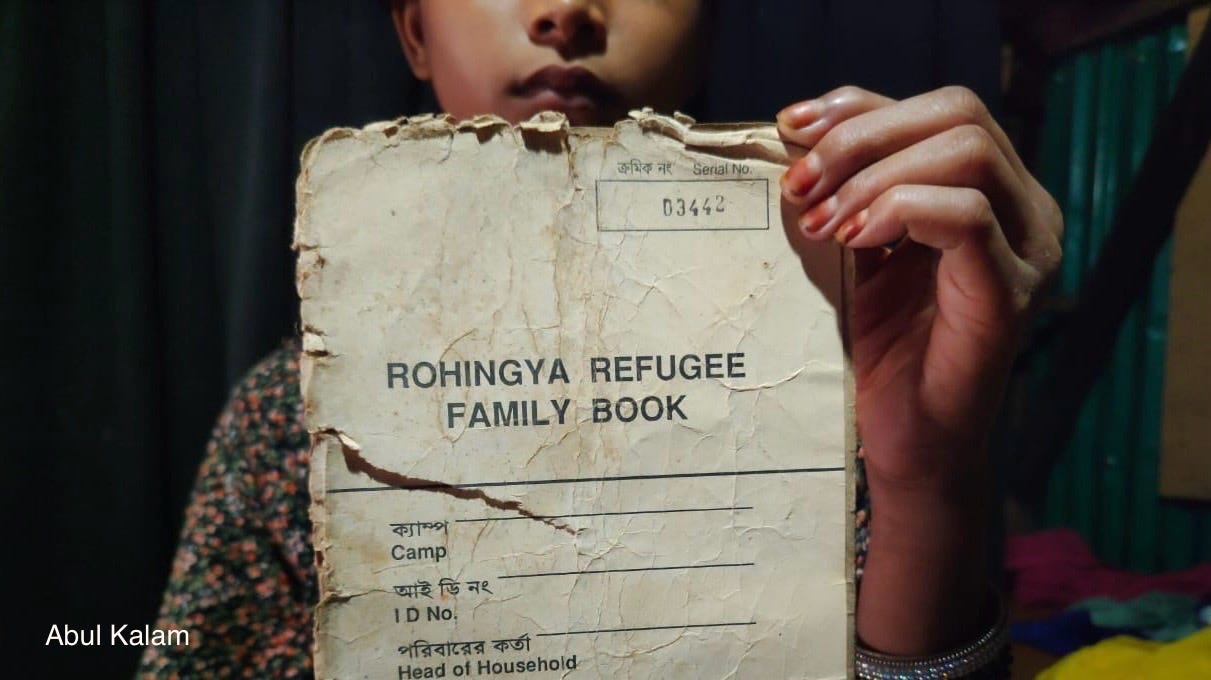The Cost of Saying “No” to Biometrics for Rohingya
I’ve just published an investigation in The Diplomat showing how 300–400 long-time Rohingya refugee families in Bangladesh were cut off from food, LPG, soap, and even primary-health clinics because they declined to submit new biometrics.
Read the full piece here.
The families’ reasons were straightforward: they feared the new “smart” cards would erase the word Rohingya, feared their fingerprints would be shared with security agencies, and, frankly, remembered the last time data was quietly passed to Myanmar. UNHCR’s own 2015 policy says consent must be “freely given.” Consent under threat of hunger is, of course, nothing of the sort.
I asked UNHCR Bangladesh to explain. They didn’t. I wrote to their head office in Geneva, and they pushed UNHCR Bangladesh to respond. Their written response insisted biometrics are “essential” and claimed “no specific protection risks were identified.” It failed to cite any legal basis for withholding life-saving aid, offered no nutrition assessment, and ignored other questions about the data. The stonewalling was done expertly.
I then submitted a detailed rebuttal outlining the disconnect between their official claims and the lived experiences of de-listed Rohingya families. I asked for the legal basis allowing UNHCR to withhold food, the protection risk assessment supposedly justifying it, and the standard consent forms that were never shown in Rohingya or Bangla. I requested the list of agencies with whom refugee biometric data is being shared, and the process for appealing “inactivation.” I had to ask these because I only received a generic restatement of UNHCR talking points that sidestepped the ethical and legal core of the matter: that starving people into submission is neither lawful nor humane.
In parallel, the affected Rohingya families have submitted a formal complaint to UN Special Rapporteurs, detailing how aid was cut after they declined biometric registration. I have also alerted Human Rights Watch and Privacy International, both of whom are reviewing the situation. The UNHCR’s failure to offer clear legal justification for its actions will now hopefully face broader scrutiny.
Aid isn’t supposed to be a bargaining chip. If registration is truly about protection, it should never hinge on an iris-scan. Read, share, and keep asking UNHCR these questions. And of course watch this space for developments.
Further Reading

